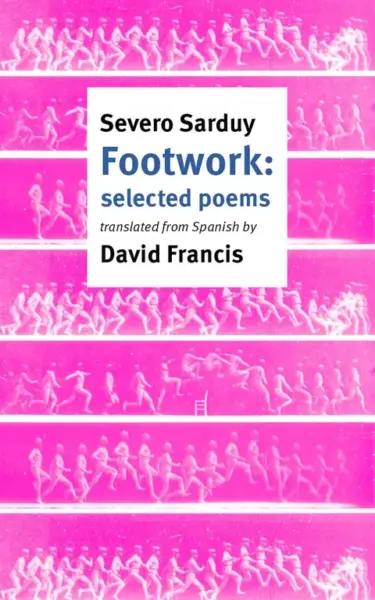[The Action Books Editors and Advisory Editors share their favorite books of poetry in translation published in 2021.]
In alphabetical order:
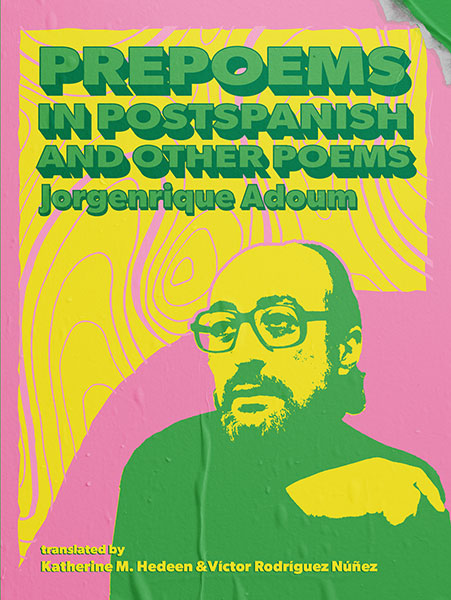
prepoems in postspanish and other poems by Jorgenrique Adoum, translated by Katherine M. Hedeen and Víctor Rodríguez Núñez (Action Books, 2021)
prepoems in postspanish and other poems marks the first full-length collection to appear in English by the groundbreaking Ecuadorian poet Jorgenrique Adoum (1926-2009), hailed by Nobel-prize winner Pablo Neruda as the best Latin American poet of his generation. Adoum’s poetry is at once radically experimental, fiercely lyrical, and passionately committed to social change. This timely volume showcases Adoum at his most formally innovative, gathering together three books published between 1973 and 1993: Curriculum Mortis, prepoems in postspanish, and Love Disinterred. Translators Katherine M. Hedeen and Víctor Rodríguez Núñez’s inventive and expert renderings bring Adoum’s experimentation to the fore. —Action Books
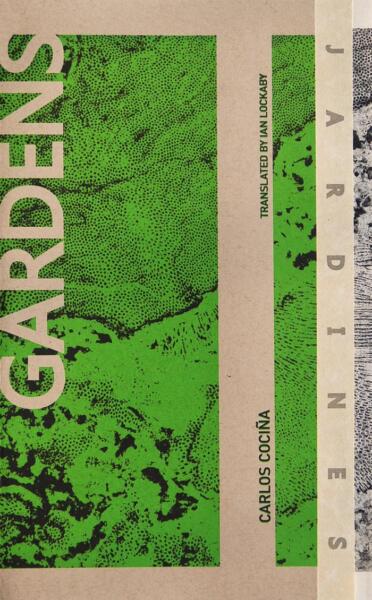
Gardens by Carlos Cociña, translated by Ian U Lockaby (Cardboard House Press, 2021)
“Nature, culture, and the imagination are hopelessly entangled, to use a key word for Carlos Cociña, in gardens. In his elegant, devastating sequence Gardens, this entanglement is considered, enacted, displayed, mined—but never disentangled; Cociña knows it is far too late for that. I loved whiling in these serpentine lines, where the concrete and abstract flow into and out of each other, “toward stadiums of the private,” suspended between the imagined and the all-too real.” —Donna Stonecipher
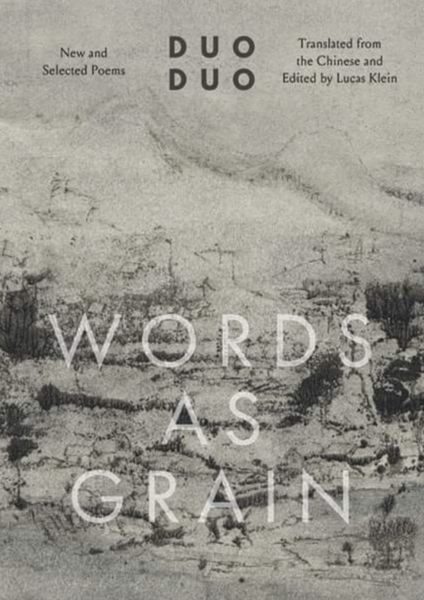
Words as Grain by Duo Duo, translated by Lucas Klein (Yale University Press, 2021)
“Words as Grain offers Zen koan-like poems that call for rereading and contemplation. As the poet himself says in ‘Reading Great Poems,’ ‘let the dialogue between thought and silence continue.’ We are fortunate to be a party to this sustained and intense dialogue.” —John Bradley, Rain Taxi
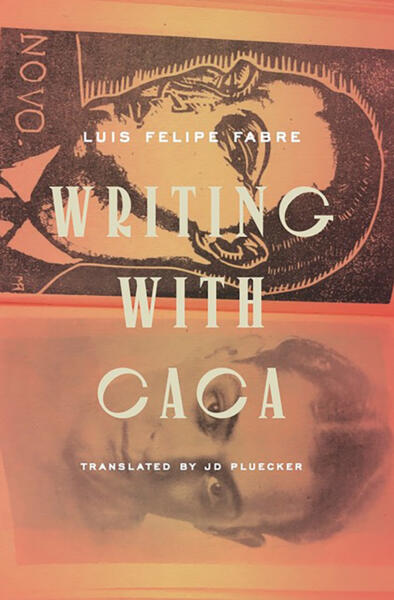
Writing with Caca by Luis Felipe Fabre, translated by JD Pluecker (Green Lantern Press, 2021)
“Luis Felipe Fabre, one of the most exciting and virtuosic Mexican poets of his generation, knows a lot of good shit. He knows a lot about Salvador Novo, the scatalogical Mexican poet of the early 20th century who, according to Octavio Paz, wrote ‘not with blood but with caca.’ This terrific book (translated with acrobatic brilliance by John Pluecker), is a work of literary history, literary criticism, poetry, and excretory theory that travels from the Aztecs to Sor Juana to the Mexican Revolution and to contemporary times. Fabre makes a compelling argument for the importance of Novo’s writing with caca, and for the importance of celebrating writers who are driven by the ‘urge to take a crap on all universal literature.'”—Daniel Borzutzky
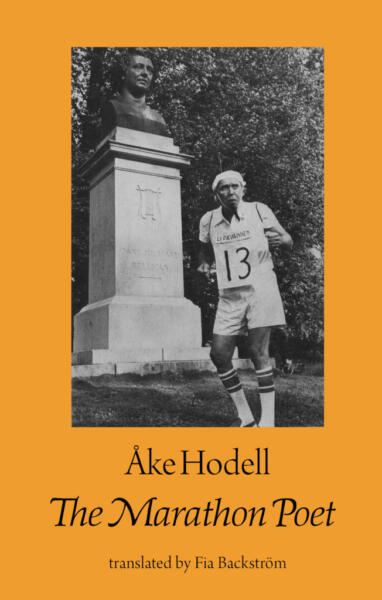
The Marathon Poet by Åke Hodell, translated y Fia Backström. Edited by Kira Josefsso (Ugly Duckling Presse, 2021)
The Marathon Poet is a rousing, fast-paced book that vacillates from poetry to prose, never concerned with the speedometer’s numbers, racing into sound after sound, sinking deeper and deeper into a desert of language, only to embrace collision itself. —Paul Cunningham, Kenyon Review
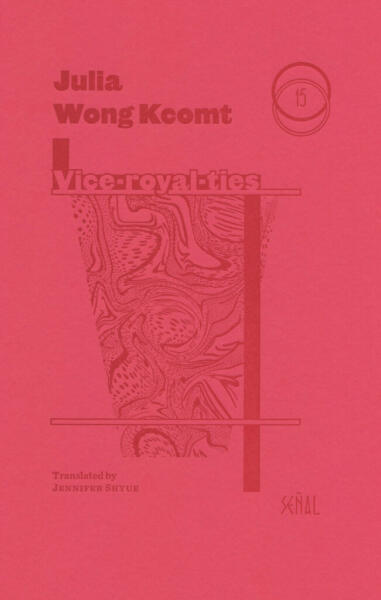
Vice-royal-ties by Julia Wong Kcomt, translated by Jennifer Shyue (Ugly Duckling Presse, 2021)
“I feel so refreshed reading Julia Wong Kcomt’s poems/Jennifer Shyue’s translations, like a lifetime of rain has lifted and I’ve been given a new prescription. And yet the feeling is not entirely free of a little foreboding, as the poems—lucid, lactic, slyly sensuous invitations into hypervigilance (attention in the face of a shapeshifting power)—are practically animistic, shading everything, making everything glow. Now I want to read everything Wong Kcomt has written (is writing) and everything Shyue is bringing, so ingeniously, into English.” —Brandon Shimoda
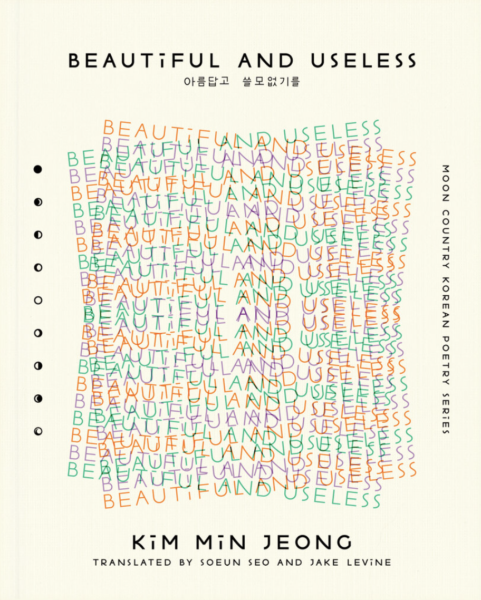
Beautiful and Useless by Kim Min Jeong, translated by Soeun Seo and Jake Levine (Black Ocean, 2021)
“[Kim Min Jeong’s poetry exposes] “a fear about the monstrous and revolting orderliness of South Korea. The coarse jabber of women who have gathered to relieve such fear is settled in it like priming powder. Therefore, the women’s everyday lives that she observes through her poetry is not a deficient or thoughtless reflection of time and space, but is where the mechanism of oppression is demystified by triviality and ridicule and through verisimilitude. It is the backyard in which language can vent.” —Kim Hyesoon
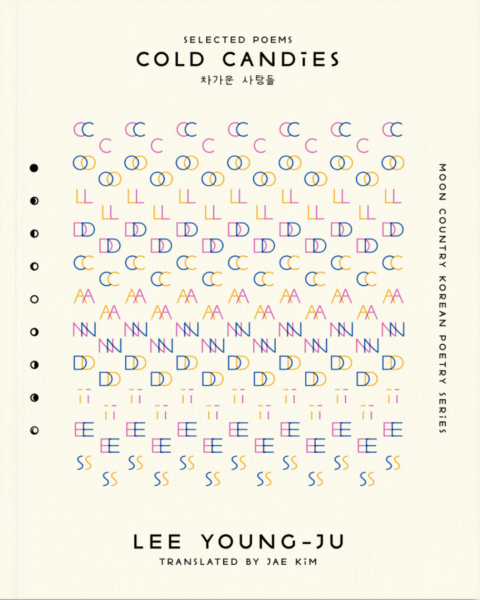
Cold Candies by Lee Young-ju, translated by Jae Kim (Black Ocean, 2021)
“What a tonic pleasure to traverse the distinctive topology of Lee Young-ju’s poetic world, in which blanket and pillow, grave and heaven form an impossibly continuous shoreline on a wondrously inverting scale. Jae Kim’s English translations render Lee’s sightlines with a deft sonority and offer a radically responsive sense of the possible.” — Joyelle McSweeney
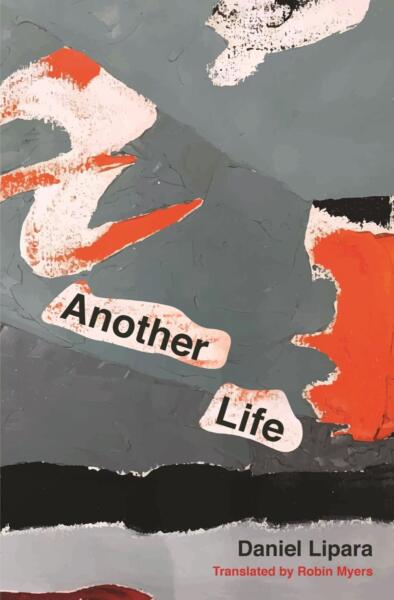
Another Life by Daniel Lipara, translated by Robin Myers (Eulalia Books, 2021)
Another Life, Daniel Lipara’s subtle and shimmering debut, is a family history, an intimate epic, a travel story, and an initiation. Both meditative and cinematic, engaging both playfully and ardently with the Odyssey and Alice Oswald’s Memorial, this book chronicles a constellation of relatives pushed into the light by the centripetal force of death. Another Life is less elegy than eulogy, summoning a vibrant range of voices and tones—caustic, tender, solemn, ecstatic—to praise the many lives that fit inside each and every one of us. —Eulalia Books
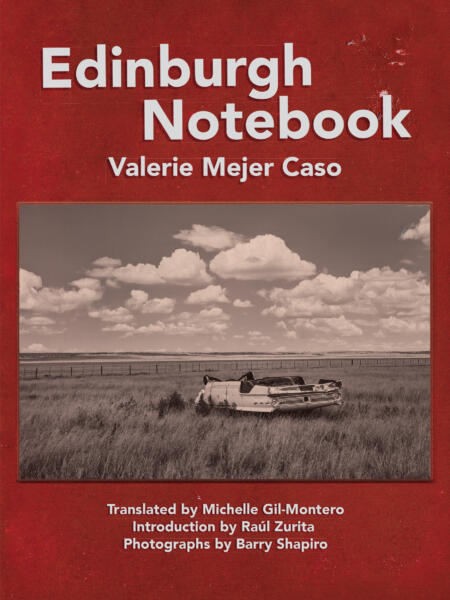
Edinburgh Notebook by Valerie Mejer Caso, translated by Michelle Gil-Montero (Action Books, 2021)
[Mejer Caso’s] work draws inspiration from the painterly imagery of the Surrealists and the absurdity of the existentialists; at times it’s reminiscent of the rapture of Rilke’s “Duino Elegies,” at others of the linguistic oddity of César Vallejo’s “Trilce.” —Elisa Gabbert, The New York Times
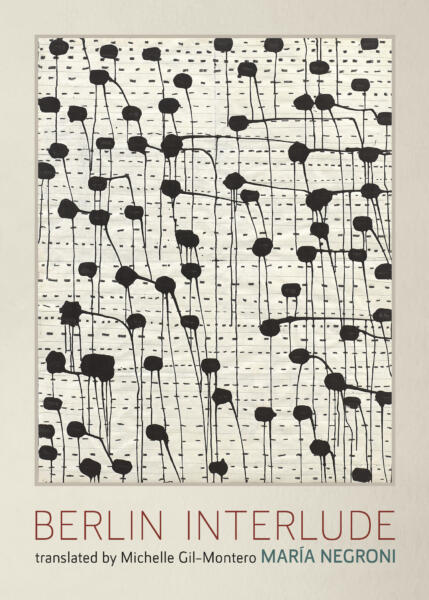
Berlin Interlude by María Negroni, translated by Michelle Gil-Montero (Black Square Editions, 2021)
“It’s been many days, twenty years, that I’ve travelled north, and now I have insomnia that drags on from the day to the night of departure. Can some airplane ship me to consciousness? To this beast on the other side, locked in its four legs, between dozing institutions and the heart of the nation? Needles in the wind. Poetics split by fear. Abstract moon that asks for more more more.”
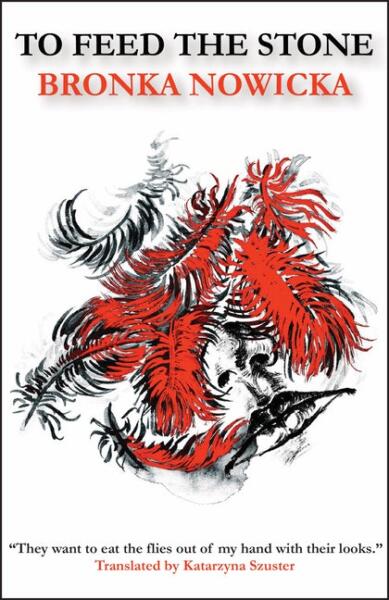
To Feed the Stone by Bronka Nowicka, translated by Katarzyna Szuster-Tardi (Dalkey Archive Press, 2021)
A bilingual edition of a book fittingly dedicated “To the Impossible,” Bronka Nowicka’s award-winning literary debut, Nakaarmić kamień (To Feed the Stone), is just as impossible to put down. Employing a Steinian language of childhood, objects, wardrobe, food, and sorrow, the deliciously bizarre prose poems of To Feed the Stone offer memorable images that are as tender as they are disturbing. Katarzyna Szuster’s enthralling translation follows the observations of a little girl filled with buttons (“I shove them in shoes, behind my shirt, some I swallow”), carrying a doll-like stone (“She’s afraid that it will die because it won’t eat”), constantly ambushed by the violence of objects. —Paul Cunningham
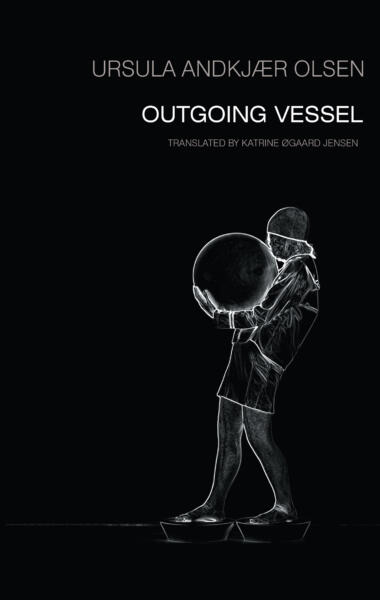
Outgoing Vessel by Ursula Andkjær Olsen, translated by Katrine Øgaard Jensen (Action Books, 2021)
“this is a shape I cannot remain in” With its mutant orbs of grief and technoscientific phenomena, Ursula Andkjær Olsen’s Outgoing Vessel is the electrifying sequel to Katrine Øgaard Jensen’s award-winning translation of Third-Millennium Heart. The book-length mirror poem titled Udgående Fartøj (Outgoing Vessel) received the Danish Critics Prize for Literature in 2015. Now, for the first time in English, a radically new and resilient voice emerges — an Outgoing Vessel — from an all-consuming darkness: “INSIDE ME THERE IS A NONDEGRADABLE ORB / MY OWN PLANET” —Action Books
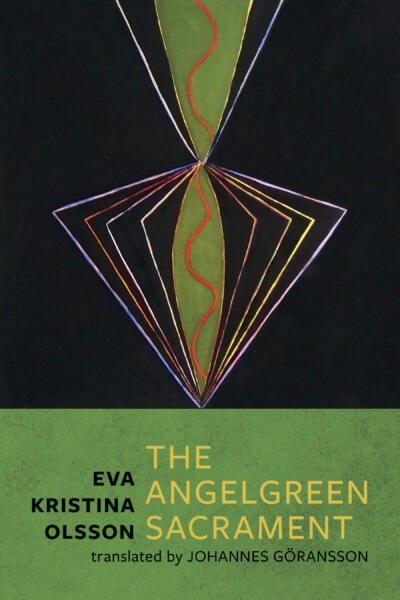
The Angelgreen Sacrament by Eva Kristina Olsson, translated by Johannes Göransson (Black Square Editions, 2021)
Olsson’s torturously beautiful ascent has a hard lightness, just like real life. And when one is in those rare moments actually permeated by the arrow’s tip of poetry, then one cannot be angry anymore. Rarely have I ever seen so clearly the distinction between the real and mystification. I just have to capitulate. Eva Kristina Olsson has written the best poetry collection of the year. —Aase Berg
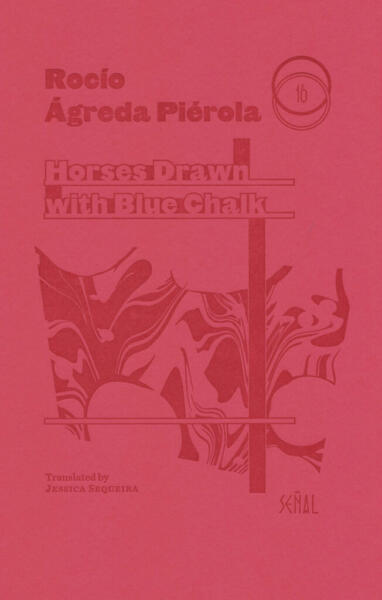
Horses Drawn with Blue Chalk by Ágreda Piérola, translated by Jessica Sequeira (Ugly Duckling Presse, 2021)
The work of the philosopher-poet Rocío Ágreda Piérola is full of ghostly traces, smudged lines from the past turned with care into new forms through references to writers like Héctor Viel Temperley and Dante, rewritings of Biblical verses, redraftings of personal memory, and forays into history with the Spanish conquistadors. In Horses Drawn with Blue Chalk, Ágreda Piérola’s sensuous language is populated by animals (hyenas, wolves, birds, cats, shoals of fish), parts of the body (the tongue, the nervous system), and the physical stuff of childhood (those horses drawn with blue chalk, erased from the wall yet forever archived in memory, to be drawn and redrawn). The questions here of how to create meaning from solitude and silence do not rely on any facile premade identities or autobiographical intimacies, but seek constantly to unsettle the known, challenging given truths to forge a meaningful communication. —Ugly Duckling Presse
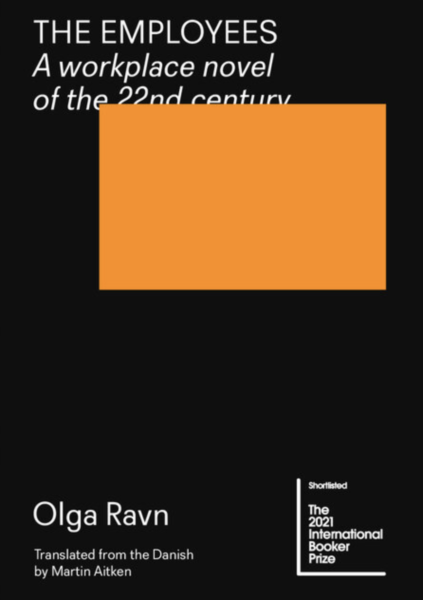
The Employees: A workplace novel of the 22nd century by Olga Ravn, translated by Martin Aitkin (Lolli Editions, 2021)
Structured as a series of witness statements compiled by a workplace commission, Ravn’s crackling prose is as chilling as it is moving, as exhilarating as it is foreboding. Wracked by all kinds of longing, The Employees probes into what it means to be human, while delivering an overdue critique of a life governed by the logic of productivity. —Lolli Editions
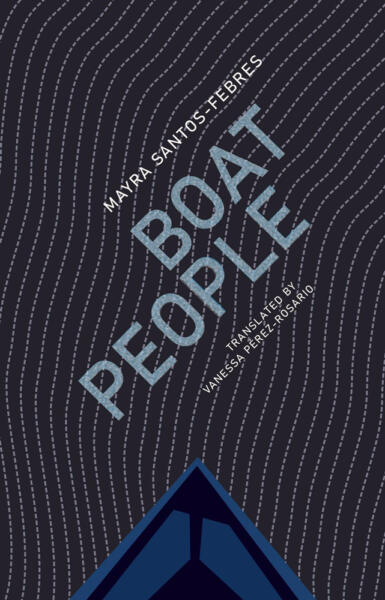
Boat People by Mayra Santos-Febre, translated by Vanessa Perez-Rosario (Cardboard House Press, 2021)
Mayra Santos-Febres is one of our most powerful writers, and Boat People has long been a part of the poetic counter-tradition that shaped generations of Puerto Rican poets. Thanks to Vanessa Pérez-Rosario, English-language readers are now plunged into the depths of a text that, to echo Patrick Chamoiseau, is composed of “that strange conference of poets and great beings,” lost at sea, tossed on shores, or caught in a world without return address or safe passage. Written like a border drawn on water, this oceanic book is both a source of life and a record of death. It remains as devastatingly urgent as the day it was written. —Raquel Salas Rivera
Footwork: Selected Poems by Severo Sarduy, translated by David Francis (Circumference Books, 2021)
Baroque, yes, as we expect from the great Severo Sarduy: but these poems are also severe, mathematical, futurist, neoclassical, occasional, private, courtly, and lubricated. Some of the poems come from the heady world of poststructuralism, but most come from a Caravaggio-like sepulchral grotto, where a lush and explicit eroticism meets up with the sculpted and the shaped. Fixity is everywhere in this volume: fate fixes Sarduy, just as the seam between sex and language fixates his verse. David Francis’s translations are a labor of love, executed with ingenuity and a voluptuary fineness. —Wayne Koestenbaum
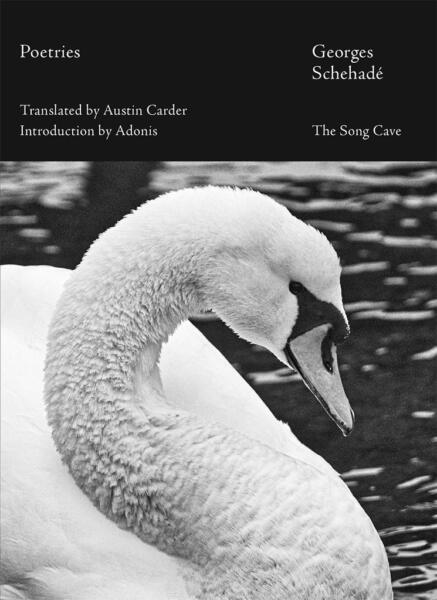
Poetries by Georges Schehadé, translated by Austin Carder (The Song Cave, 2021)
The first book-length translation of works by this important Egyptian-born, Lebanese-French poet, Poetries presents the core of Georges Schehadé’s (1905-1989) œuvre. Though best known as a dramatist, Schehadé was first and foremost a poet. His lifework was the seven volumes of crystalline poems published over a span of nearly a half-century (1938-1985), each successive volume simply and enigmatically titled Poetries. It is from these seven books that our selection has been drawn. —The Song Cave
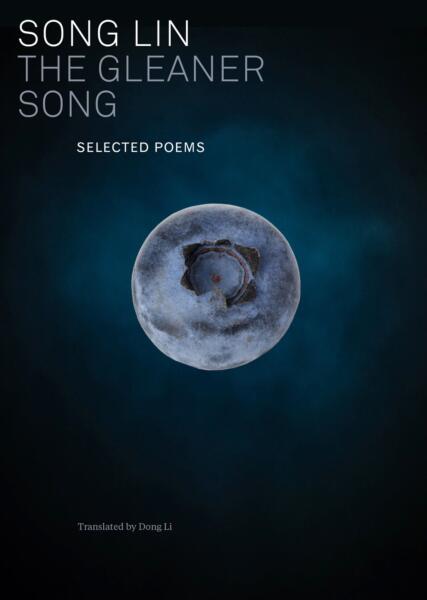
The Gleaner Song by Song Lin, translated by Dong Li (Deep Vellum, 2021)
“The Gleaner Song, is a deeply moving ‘letter from elsewhere,’ shaped by Song Lin’s exiled life and existential restlessness. The gifted, multilingual poet Dong Li has attentively translated and tracked Song’s language that paints ‘the true picture of the earth’ as it orbits history, memory, distance, and nearness as well as clusters of stars such as C.D. Wright, Paul Celan, and Anselm Kiefer.” —Don Mee Choi
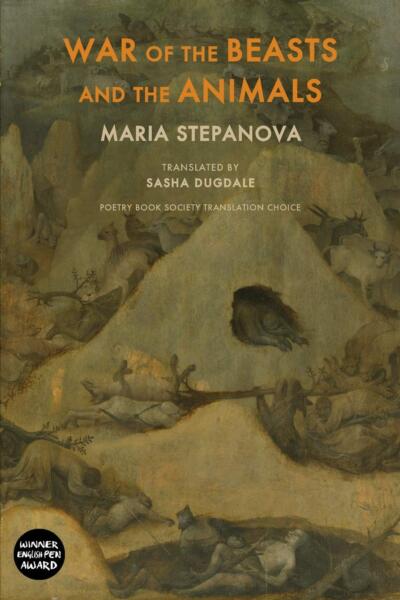
War of the Beasts and the Animals by Maria Stepanova, translated by Sasha Dugdale (Bloodaxe Books, 2021)
“Wildly experimental, and yet movingly traditional. Ironic, and yet obsessed with spell-making. Full of allusions to various different canonical voices, and yet heart-wrenchingly direct. What, friends, is this? It’s that glorious thing: the poetry of Maria Stepanova.” —Ilya Kaminsky
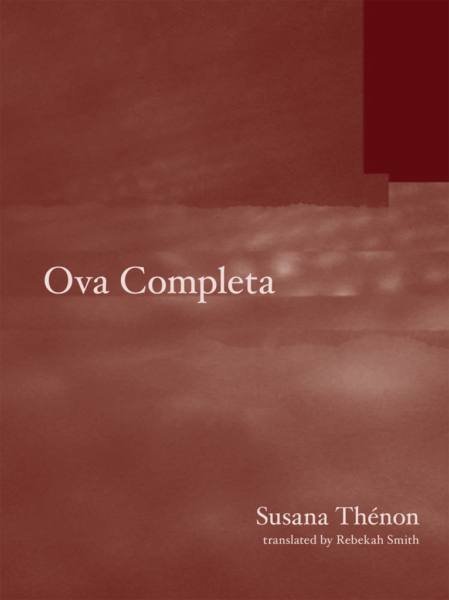
Ova Completa by Susana Thénon, translated by Rebekah Smith (Ugly Duckling Presse, 2021)
“By the end of the collection, it becomes possible to envision the woman’s scream not as a breaking point, but as a radical move to demand space—like Thénon granting herself an Ova Completa—in a world that gives so much space to men. It is a call to pay attention to the asterisk fodder—to translate it.” —Olivia Lott
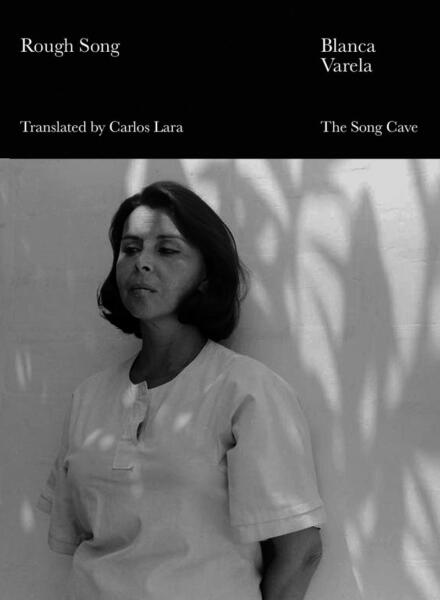
Rough Song by Blanca Varela, translated by Carlos Lara (The Song Cave, 2021)
“These haunting songs unfold with the mysterious precision of fractals, bending their interiors into pliant, living forms. As I get to know Blanca Varela’s work, in Carrlos Lara’s beautiful translation from the Spanish, my ear becomes attuned to the smallest moving gradations, the spider that “doesn’t dare descend one / more millimeter toward the ground,” a surrealism I associate with Alejandra Pizarnik, Henri Michaux, and I’m so grateful to have come to it.” —Alexis Almeida

The World’s Lightest Motorcycle by Yi Won, translated by EJ Koh and Marci Calabretta Cancio-Bello (Zephyr Press, 2021)
“Yi Won’s The World’s Lightest Motorcycle arrives like a photon in E.J. Koh and Marci Calabretta Cancio-Bello’s agile, radiant translation. With consummate lightness, Yi Won’s poetry reveals the double potential in everything—the radical intimacy of the seemingly distant, the radical newness of the close-to-hand. In Yi Won’s line of sight, the universe is truly expanding; not just the elevator, but the floor itself is rising, heaven and earth change places, the inkdrop gleams like a cat’s eye. Jump up, jump on, jump in!” —Joyelle McSweeney
